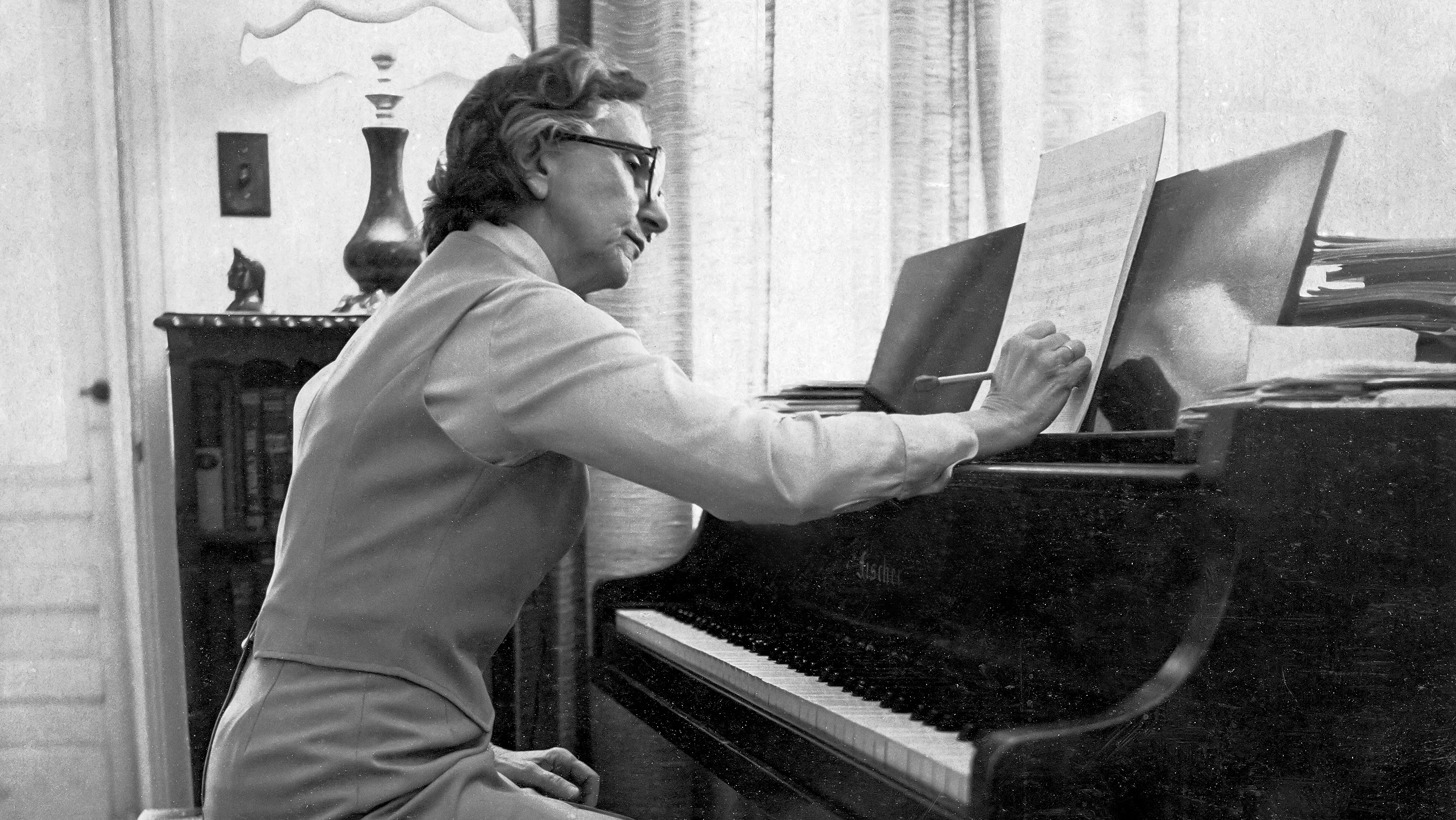An archival collection documenting the life and accomplishments of a University of Alberta music professor has struck a high note by earning a world-class designation.
The Violet Archer fonds at the U of A has been accepted into the Canada Memory of the World Register, part of a UNESCO program that showcases the most meaningful documents in humanity’s heritage and history.
Created by the Canadian Commission for UNESCO in 2017, the register promotes the diversity of Canada’s significant documentary heritage. The collection of Archer’s life and works is one of 23 listed in the registry, marking the first time an Albertan institution has been included.
“This demonstrates to the world that the U of A has high-quality collections in its holdings, and we now have a part in showing Canada’s collective history by being included in this register,” said Anna Gibson Hollow, head archivist for the University of Alberta Archives.
The designation signifies Archer’s importance to the Canadian cultural landscape as a renowned classical music composer, Gibson Hollow added.
“She was recognized by the Canadian Commission for UNESCO as someone of note. It’s wonderful to have this collection of materials from a woman who was a highly regarded composer and a professor here at the U of A. She was an amazing woman and a trailblazer.”
Archer taught in the U of A’s music department from 1962 until she retired in 1978. During her lifetime she composed more than 300 pieces of music for orchestra, choir, organ and solo piano. She broke new ground by working as a female composer during the 1940s, when the field was male-dominated. Her works were influenced by the cultures of Indigenous Peoples combined with Canadian folk music. Many of her compositions are included in the syllabi of Conservatory Canada and the Royal Conservatory of Music for piano, voice, strings and winds.
The extensive archival collection acquired by the U of A in 2001 spans a period of Archer’s life from 1920 until her death in 2000. It includes handwritten records of her teaching, composing, research and life experiences that illustrate both the professional and personal facets of her life.
The records encompass music history, composition and theory, and demonstrate her career path as a composer in North American society. The collection contains textual records, sound recordings, artwork, photos and other graphic materials.
“It’s a complete picture of Violet Archer, the person,” said Gibson Hollow.
The collection’s inclusion in the global registry provides many teaching and research opportunities for scholars beyond the U of A based on Archer’s career and life, she noted.
“There’s such insight into her personal life that you get a better understanding of her and the challenges she faced in her field, what influenced her music and her teaching. That knowledge can touch on different facets of research such as musicology, women’s studies and teaching styles during a certain era.”
